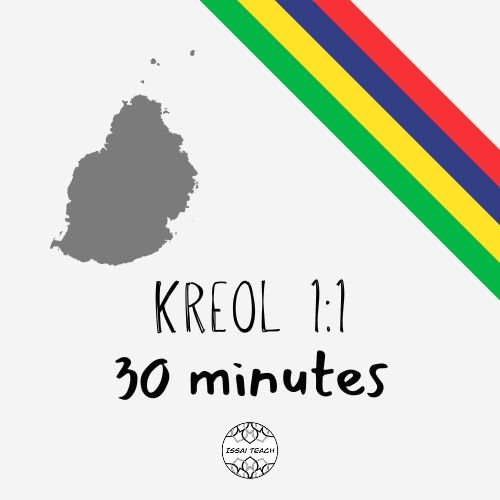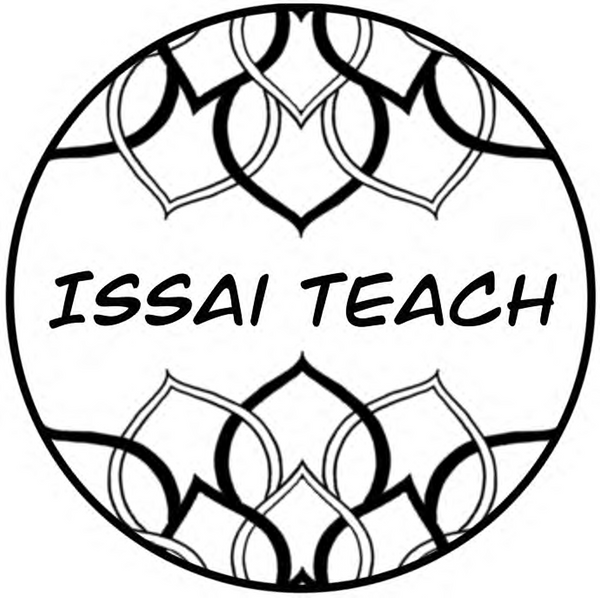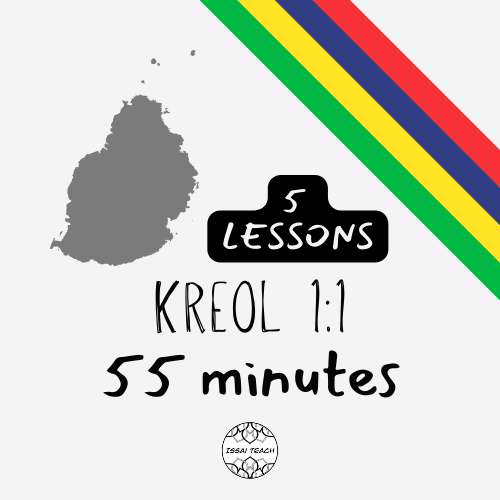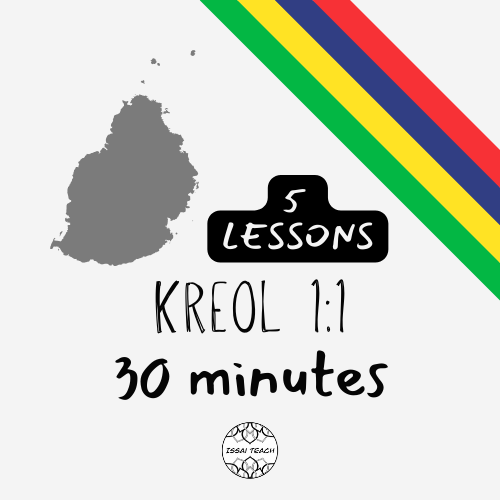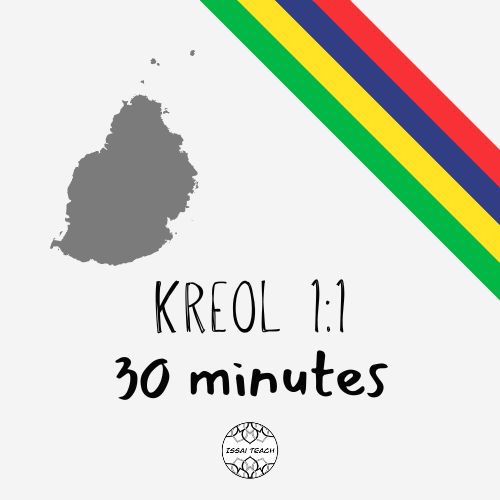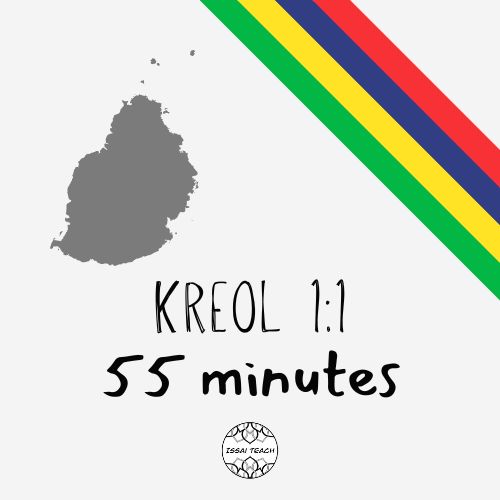-
5 Lessons - 55-minutes 1:1 - Morisyen - Mauritian Creole
Regular price £115.00 GBPRegular priceUnit price / per£125.00 GBPSale price £115.00 GBPSale -
5 lessons - 30-minutes 1:1 - Morisyen - Mauritian Creole
Regular price £57.50 GBPRegular priceUnit price / per£62.50 GBPSale price £57.50 GBPSale -
30-minute 1:1 lesson - Morisyen - Mauritian Creole
Regular price £12.50 GBPRegular priceUnit price / per -
55-minute 1:1 lesson - Morisyen - Mauritian Kreol
Regular price £25.00 GBPRegular priceUnit price / per
Simple Present Tense in French (Présent de l'indicatif)
The simple present tense, known as "présent de l'indicatif" in French, is one of the most essential tenses to master. It is used to describe actions that are currently happening, habitual actions, and universal truths. Understanding how to form and use the present tense is fundamental for effective communication in French.
Uses of the Simple Present Tense
-
Current Actions
- Describing what is happening right now.
- Example: Je mange (I am eating).
-
Habitual Actions
- Talking about actions that happen regularly.
- Example: Nous allons à l'école tous les jours (We go to school every day).
-
Universal Truths
- Stating facts or truths that are generally accepted.
- Example: Le soleil se lève à l'est (The sun rises in the east).
Forming the Simple Present Tense
To form the simple present tense, you need to conjugate the verb according to the subject. French verbs are divided into three groups based on their infinitive endings: -ER, -IR, and -RE.
-
Regular -ER Verbs
- Example: Parler (to speak)
- Remove the -ER ending and add the appropriate endings: -e, -es, -e, -ons, -ez, -ent.
-
Conjugation:
- Je parle (I speak)
- Tu parles (You speak)
- Il/Elle/On parle (He/She/One speaks)
- Nous parlons (We speak)
- Vous parlez (You speak, formal/plural)
- Ils/Elles parlent (They speak)
-
Regular -IR Verbs
- Example: Finir (to finish)
- Remove the -IR ending and add the appropriate endings: -is, -is, -it, -issons, -issez, -issent.
-
Conjugation:
- Je finis (I finish)
- Tu finis (You finish)
- Il/Elle/On finit (He/She/One finishes)
- Nous finissons (We finish)
- Vous finissez (You finish, formal/plural)
- Ils/Elles finissent (They finish)
-
Regular -RE Verbs
- Example: Vendre (to sell)
- Remove the -RE ending and add the appropriate endings: -s, -s, -, -ons, -ez, -ent.
-
Conjugation:
- Je vends (I sell)
- Tu vends (You sell)
- Il/Elle/On vend (He/She/One sells)
- Nous vendons (We sell)
- Vous vendez (You sell, formal/plural)
- Ils/Elles vendent (They sell)
Irregular Verbs
Some common verbs have irregular conjugations in the present tense and must be memorised. Here are a few examples:
-
Être (to be)
- Je suis (I am)
- Tu es (You are)
- Il/Elle/On est (He/She/One is)
- Nous sommes (We are)
- Vous êtes (You are, formal/plural)
- Ils/Elles sont (They are)
-
Avoir (to have)
- J'ai (I have)
- Tu as (You have)
- Il/Elle/On a (He/She/One has)
- Nous avons (We have)
- Vous avez (You have, formal/plural)
- Ils/Elles ont (They have)
-
Aller (to go)
- Je vais (I go)
- Tu vas (You go)
- Il/Elle/On va (He/She/One goes)
- Nous allons (We go)
- Vous allez (You go, formal/plural)
- Ils/Elles vont (They go)
-
Faire (to do/make)
- Je fais (I do/make)
- Tu fais (You do/make)
- Il/Elle/On fait (He/She/One does/makes)
- Nous faisons (We do/make)
- Vous faites (You do/make, formal/plural)
- Ils/Elles font (They do/make)
Practice Examples
-
Je lis un livre.
- Translation: I am reading a book.
-
Tu écris une lettre.
- Translation: You are writing a letter.
-
Il regarde la télévision.
- Translation: He is watching television.
-
Nous mangeons au restaurant.
- Translation: We are eating at the restaurant.
-
Vous travaillez tous les jours.
- Translation: You work every day.
-
Elles jouent au tennis.
- Translation: They play tennis.
Mastering the simple present tense is a key step in your journey to fluency in French. Regular practice and exposure to the language will help you become more comfortable with verb conjugations and their usage.
Issai Teach LTD
30-minute 1:1 lesson - Morisyen - Mauritian Creole
Share
